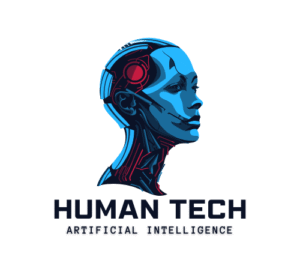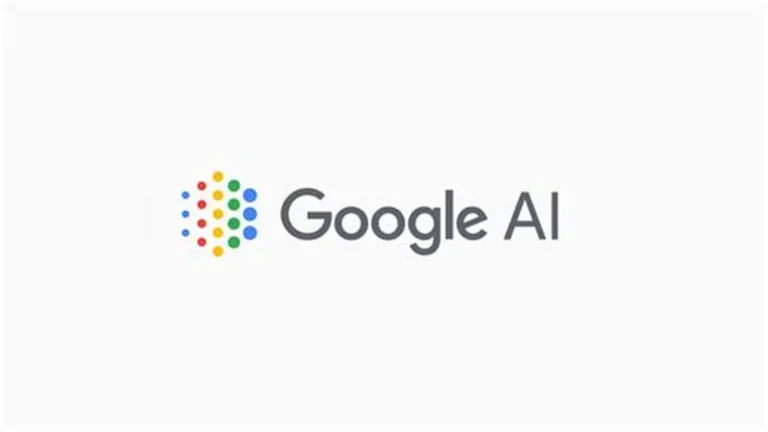The Business Case for Artificial Intelligence
Introduction
Artificial Intelligence (AI) has transitioned from a speculative idea found in sci-fi stories to a vital technology reshaping numerous sectors, including manufacturing, healthcare, finance, and education. Today, companies are at a crucial turning point: embracing AI is no longer just an option but a key strategy. Organizations that recognize and integrate AI stand to gain remarkable benefits in efficiency, innovation, and competitiveness.
This article delves into the importance of AI for businesses: its significance, the value it brings, potential challenges, and ways organizations can adopt it responsibly and effectively.
Grasping AI in Business
At its essence, AI represents machines’ capability to perform tasks usually requiring human intelligence, like learning, reasoning, problem-solving, and understanding language. In a business setting, AI includes technologies such as machine learning (ML), natural language processing (NLP), computer vision, and robotic process automation (RPA).
AI systems sift through large volumes of data to find patterns, make predictions, and automate decisions much faster than humans can. This ability helps companies transition from gathering insights to taking actions autonomously, significantly minimizing errors and streamlining operations.
The Economic Need for AI
Market Growth and Competitive Edge
Research from McKinsey shows that businesses using AI significantly surpass their competitors in revenue growth and efficiency. The global AI market, valued at around $200 billion in 2023, is expected to exceed $1 trillion by 2030. This rapid growth results from advances in computing power, cloud services, and easy-to-use machine learning tools.
Pioneers like Amazon, Google, and Tesla illustrate how integrating AI can transform business strategies. For instance, Amazon employs AI to customize shopping experiences, refine logistics, and adjust prices in real time. Google uses AI for its search engine algorithms and ad placements, while Tesla relies on AI for its self-driving technology.
For smaller businesses, AI has become more accessible through platforms like OpenAI, Azure AI, and Google Vertex AI, allowing even startups to utilize smart automation and predictive tools.
Boosting Efficiency and Cutting Costs
AI is particularly good at automating routine tasks like data entry, scheduling, customer support, and quality checks. This frees up employees to concentrate on more valuable, creative, and strategic roles.
For example, robotic process automation (RPA) can handle invoice processing, manage HR data, and ensure compliance without tiredness or mistakes. Predictive maintenance tools in manufacturing forecast equipment failures before they happen, cutting down on downtime and repair costs.
According to Deloitte, businesses employing AI-driven automation can lower their operating costs by 30-40% while simultaneously enhancing productivity and accuracy.
Strategic Advantages of AI Adoption
Improved Decision-Making
AI’s ability to analyze extensive data quickly enables businesses to make informed, evidence-based decisions. Machine learning models can predict demand, detect fraud, optimize supply chains, and assess customer feedback.
For instance, retailers utilize AI to anticipate purchasing patterns and manage inventory in real time. Banks use AI for assessing credit risks and identifying fraudulent activities. Healthcare providers lean on AI to evaluate patient information and suggest personalized treatment strategies.
Data-driven decision-making helps turn uncertainties into opportunities, giving business leaders an advantage in unpredictable markets.
Personalization and Customer Experience
Today, customers want experiences that feel customized just for them. With the help of AI, companies can offer these personalized interactions on a large scale. Tools like recommendation engines, chatbots, and predictive analytics make it easier to connect with customers by understanding what they need.
For example, over 80% of what people watch on Netflix is suggested by its AI recommendation system. Similarly, Spotify uses AI to create tailored playlists for listeners, and online shopping sites utilize AI for flexible pricing that aligns with what customers want, boosting sales.
In customer support, AI chatbots can manage thousands of questions at once, speeding up responses and increasing satisfaction. Advanced AI tools, like those powered by GPT, have changed how businesses communicate with customers, mixing automation with friendly conversation.
Innovation and New Business Models
AI isn’t just about making things better — it’s about creating whole new types of businesses. The growth of platforms, subscription models, and services based on data analysis all stem from AI’s powerful insights.
Take Uber and Airbnb, for example; they use AI to adjust prices based on demand and allocate resources smartly. Financial tech companies utilize AI to provide personalized investment options, making financial services more accessible for everyone.
Generative AI is also changing creative fields. Companies such as Adobe and Canva have begun to use AI to automatically create design templates, ads, and images — shortening creative projects from days to just minutes.
AI Across Key Industries
Manufacturing
AI is enhancing manufacturing by automating tasks to boost productivity, improve quality, and ensure safety. Predictive maintenance technology finds issues in machines before they cause downtime, while AI robots can adjust as production needs change, allowing for greater accuracy and flexibility.
Companies like Siemens and General Electric use digital twins — AI models that mimic real operations — to refine performance and foresee future challenges.
Healthcare
In healthcare, AI is speeding up diagnoses, finding new drugs, and managing patient care. Some AI algorithms can spot early signs of illnesses like cancer or diabetes in imaging data very accurately.
For instance, DeepMind’s AI can match the diagnostic skills of human specialists in detecting retinal diseases. Chatbots like Babylon Health offer virtual consultations, making healthcare more accessible.
AI also aids in clinical decision-making, helping doctors provide quicker and more precise treatment suggestions.
Finance
In the finance world, banks and financial institutions are turning to AI for things like preventing fraud, trading stocks, managing risks, and assisting customers. AI systems can analyze transaction patterns to spot fraud in real-time, saving billions each year.
Companies like J.P. Morgan utilize AI for analyzing contracts, while Mastercard employs AI to boost payment security and improve accuracy.
Retail and E-Commerce
AI helps in predicting demand, giving personalized product recommendations, and optimizing inventory. Retailers are using computer vision to create stores without checkout lines (like Amazon Go) and employing sentiment analysis to enhance their marketing strategies.
AI-driven supply chain tools allow retailers to foresee disruptions and handle logistics more effectively.
Transportation and Logistics
Autonomous cars and route optimization are changing the logistics landscape. Companies like UPS and DHL utilize AI to find the best delivery routes, helping to cut down on fuel use and emissions.
In airports, AI is used to anticipate maintenance needs and streamline the processes for passenger check-in and baggage handling.
Measuring the Returns on AI Investments
Investing in AI can lead to clear benefits like reducing costs, increasing revenue, and improving efficiency. To effectively measure these returns, businesses need to connect AI projects with their overall goals.
Saving Costs
AI can help lower labor expenses and reduce mistakes. For instance, using chatbots may lead to up to a 70% decrease in customer service-related costs, while predictive maintenance can decrease downtime and repair bills for equipment.
Boosting Revenue
AI can enhance customer experiences through personalization and targeted recommendations, resulting in higher sales. According to McKinsey, companies that adopt AI in their marketing and sales efforts could experience revenue growth that’s 5–15% higher than their competitors.
Improving Productivity
AI supports human workers, allowing them to accomplish tasks more efficiently and accurately. This can result in productivity gains of 20–40% across various industries.
Reducing Risks
AI can strengthen compliance, cybersecurity, and quality control, helping to reduce risks that might lead to financial losses or damage to a company’s reputation.
Challenges and Ethical Concerns
While AI has great potential to change things for the better, it also brings along several challenges.
Data Quality and Fairness
The effectiveness of AI relies heavily on the quality of the data it learns from. If the data is biased or incomplete, it can result in unfair outcomes, hurting a company’s reputation and leading to legal issues. Ensuring a diverse and transparent data set is vital.
Job Displacement and Skill Gaps
The rise of automation raises worries about job loss. While AI may remove repetitive tasks, it also creates new roles like data scientists, AI developers, and ethicists. Companies should invest in training their employees to help them adapt to this changing landscape.
Governance and Responsibility
AI decision-making can sometimes be unclear, often referred to as “black box” models. Businesses need to adopt governance systems for AI that promote transparency, fairness, and accountability.
Legal and Regulatory Challenges
Governments across the globe are creating laws related to AI, such as the EU AI Act and the U.S. AI Executive Order. Organizations must keep up with these changing rules to avoid legal issues.
Creating an Organization Powered by AI
To really harness AI’s potential, it’s not just about the tech; it’s about changing the culture and aligning strategies.
Leadership and Vision
Having support from the top is crucial. Leaders need to clearly communicate how AI fits into the organization’s goals and mission for the future.
Data Systems
A strong data setup is vital. This means having secure, accurate, and easy-to-access information. Using cloud services, data storage solutions, and application programming interfaces (APIs) helps in expanding AI capabilities.
Working Together Across Departments
Effective AI projects rely on teamwork among IT, operations, marketing, HR, and compliance teams. Diverse groups ensure that AI solutions are useful, ethical, and meet business demands.
Ongoing Learning and Flexibility
AI models need to adapt as fresh data comes in. Companies should use flexible approaches and keep a close eye on AI systems to improve them continually.
Looking Ahead: From Automating to Enhancing
The future of AI will focus on enhancing human abilities rather than just replacing jobs. Innovations like generative AI, multimodal models, and self-driving systems will change how we create, work, and make decisions.
For instance, generative AI helps marketing teams brainstorm ideas, allows developers to create code, and enables designers to make prototypes — all in just minutes. AI tools in software development and data analysis help employees to be more efficient.
Additionally, AI focused on sustainability is becoming increasingly important. Companies are using it to track energy use, minimize waste, and assess carbon footprints, linking innovation with caring for the environment.
Conclusion
The advantages of AI for businesses are clear. It boosts efficiency, inspires new ideas, customizes customer experiences, and opens up new ways to earn revenue. However, success hinges on careful implementation — balancing automation with ethical considerations and innovation with responsibility.
In the next ten years, AI will be as essential to business as electricity was in the past. Organizations that take bold steps now — investing in data, talent, and proper governance — will shape the competitive landscape of the future.
For leaders, the question is no longer if they should adopt AI, but how to do so in a smart, ethical, and scalable way. Those who embrace this change will not only succeed but also contribute to building a smarter, more resilient global economy.
FAQs
What is Artificial Intelligence (AI) in business?
Artificial Intelligence is when computers are designed to do tasks usually done by humans, like solving problems, making decisions, and recognizing patterns. In businesses, AI helps analyze data, streamline processes, improve customer service, and encourage new ideas.
Why is AI important for businesses today?
AI is crucial for modern businesses because it helps them work more efficiently, make smarter decisions, and tailor experiences for customers. Companies that use AI can save money, boost productivity, and explore new growth paths, giving them a strong edge over competitors.
How can AI lower operational costs?
AI can take over repetitive tasks like entering data, scheduling, and generating reports. It can also forecast when maintenance is needed, improve logistics, and minimize human mistakes. Research indicates that using AI for automation can reduce operational costs by 30-40% in several sectors.
What are some examples of AI in action?
- Amazon: Uses AI for suggesting products, managing logistics, and setting prices.
- Netflix: Utilizes AI to recommend shows and movies based on user preferences.
- Tesla: Applies AI for self-driving technology and enhancing vehicle performance.
- Banks: Implement AI to detect fraud, assess risks, and manage customer service through chatbots.
- Manufacturers: Use AI for predicting maintenance needs and ensuring product quality.
What types of AI technologies are commonly used in business?
The most popular AI technologies include:
- Machine Learning (ML): Systems that learn from data to make forecasts.
- Natural Language Processing (NLP): Allows computers to understand and interact using human language.
- Computer Vision: Enables machines to interpret images and videos.
- Robotic Process Automation (RPA): Automates routine digital tasks.
- Generative AI: Produces new content like text, images, or designs.




